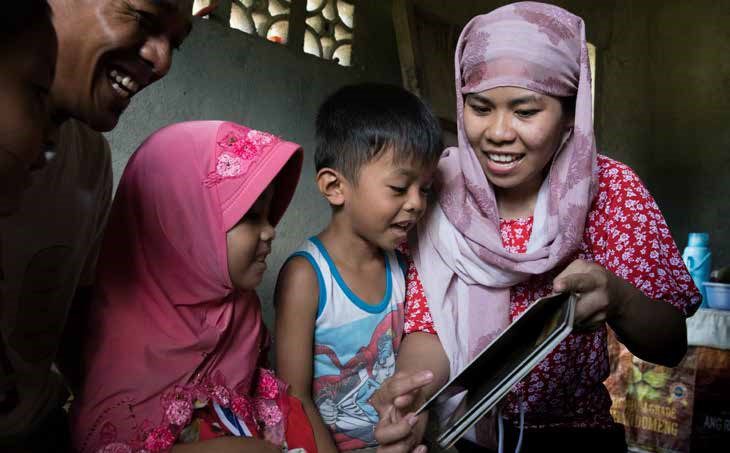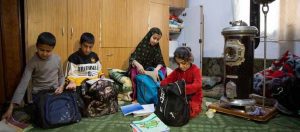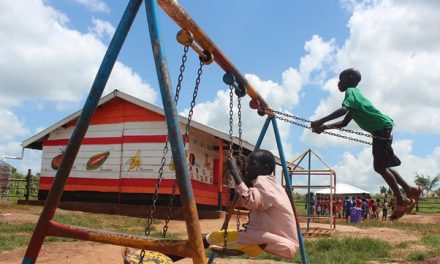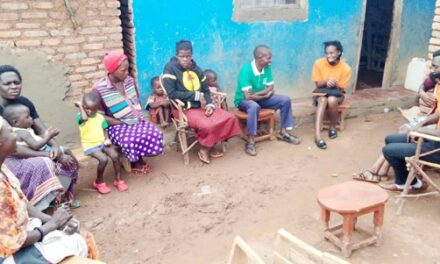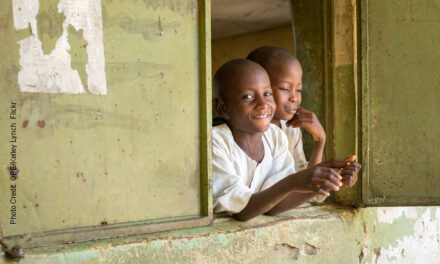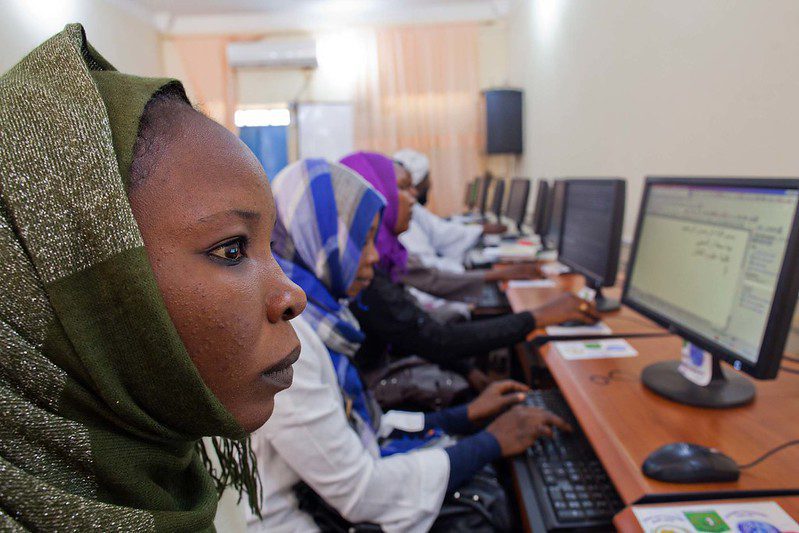This blog was written by Emma Wagner, Education in Emergencies, Policy & Advocacy Adviser, Save the Children. This article is part of a collection of INEE blogs related to the education in emergencies response to COVID-19. This blog was originally published on the INEE website on 9 April 2020.
Recommendations for keeping children safe and learning, during and after the COVID-19 crisis
The COVID-19 crisis puts the promise of Sustainable Development Goal 4 – inclusive and equitable quality education for all – into more jeopardy than ever before. A new inter-agency briefing from Save the Children, UNICEF, INEE, Plan International, Finn Church Aid and Humanity and Inclusion explains that with the right action, coordination and resources, we can mitigate the impact of school closures and ensure children can keep learning.
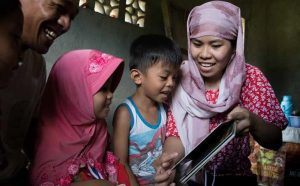
Jenaica, 4, (pink headscarf), and her family read together at home, in Mindanao, Philippines. © SavetheChildren/ Hannah Adcock
As of early April, most countries have introduced nation-wide early childhood care, school and university closures affecting nearly 90% of the world’s student population – more than 1.5 billion learners.
Quality education can provide a sense of predictability and routine for children, and can help to provide a safe, protective and nurturing environment for them to learn and develop.
Governments and donors, in collaboration with national and international partners must urgently ensure safe, inclusive access to emergency distance learning, with psychosocial support and social emotional learning components during and after the COVID-19 crisis. This can be done by supporting governments to plan and develop flexible national education systems, to give teachers and caregivers the right support to deliver distance learning and by maintaining and increasing international funding to countries most in need.
Across all countries, the most vulnerable and marginalised children – the poorest, girls, those with disabilities or affected by crisis – will be more impacted than others. They will have limited options for distance learning through the internet, television, radio or mobile phones and so alternative distance learning materials at home should be provided.
Although a different kind of crisis in scale and fatality rate, what can we learn from the Ebola outbreak in 2014-2016 in Guinea, Liberia and Sierra Leone to ensure girls’ and boys’ learning continues during COVID-19?
We know that children from the poorest families were forced to stop learning and start work to contribute to the household budget. In Sierra Leone, boys reported being involved in mining and petty trading, whilst girls reported being involved in collecting firewood for sale. Cases of teenage pregnancy more than doubled to 14,000. Fear of sexual assault was common, and children told stories of girls being attacked and raped, even in Ebola-quarantined households.
Measures and additional funding should be put in place to support the most marginalised children and youth to access alternative forms of education. This could include cash transfers, provision of additional food, access to free health care.
The gap between the numbers of girls and boys out of school is likely to increase due to COVID-19, as girls are less likely to return to school following extended school closures. All actors involved in the delivery of distance education, including teachers and parents, should ensure programmes are gender-sensitive and mitigate the risks of gender-based violence and prevent sexual exploitation.
During the Ebola outbreak Save the Children provided essential psychosocial support to children to help them recover from their experiences, referring children for further assistance where necessary, and provided protection and support to children who lost their caregivers. We are providing similar support now, but this urgently needs scaling up across all responders.
Donors must urgently increase their funding for education in the COVID-19 response
Critically, governments must maintain and increase domestic spending on education. Donor governments must continue to allocate flexible funding to education through both bilateral and multilateral aid recognising that this crisis will be unpredictable.
Education Cannot Wait (ECW) has taken quick action, allocating $23 million for the next 3 months across 27 countries in which ECW is already working. Donors urgently need to fill ECW’s initial funding ask of $50 million to ensure learning continuity, raise further awareness of risks associated with COVID-19, provide WASH services, and prioritise MHPSS and protection efforts.
New inter-agency briefing sets out recommendations for action
Save the Children, has developed this inter-agency briefing with partners – Learning must go on: Recommendations for keeping children safe and learning, during and after the COVID-19 crisis – to highlight the impacts of school closures on children and provides recommendations for governments and donors, together with partners, to ensure that safe, quality and inclusive learning reaches all children and that education systems are strengthened and ready for the return to school.
Our key recommendations are to:
- Continue learning: Even with schools closed, learning must continue. Governments, donors and partners must support schools and teachers to develop emergency distance learning materials and activities accessible to all children, particularly the most marginalised.
- Protect wellbeing: Mental health and psychosocial support should be fully integrated into educational responses.
- Address the needs of marginalized children and youth: School closures should not further exacerbate educational inequalities on the basis of gender, poverty, disability, ethnicity, religion, geographic location and more.
- Support the specific needs of children and youth affected by conflict, humanitarian crises and forced displacement: Quality education can play a critical role in mitigating the harmful impact of conflict on children’s well-being and supporting their recovery.
- Support teachers and parents: The response should consider the importance of protecting the wellbeing and economic security of teachers and parents.
- Strengthen education systems in preparation for school reopening: Government health authorities should decide when schools reopen and all educational authorities should adhere to the Guidance for COVID-19 Prevention and Control in Schools.
- Maintain and increase financing: Increased funding will be essential to support the continuation of learning for all children, including marginalised groups.
Download and read the 10-page brief for full details.

